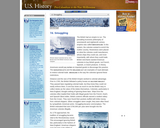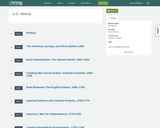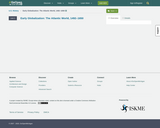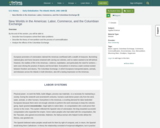
The British had an empire to run. The prevailing economic philosophy of seventeenth and eighteenth century empires was called mercantilism. In this system, the colonies existed to enrich the mother country. Restrictions were placed on what the colonies could manufacture, whose ships they could use, and most importantly, with whom they could trade. British merchants wanted American colonists to buy British goods, not French, Spanish, or Dutch products. In theory, Americans would pay duties on imported goods to discourage this practice. The Navigation Acts and the Molasses Act are examples of royal attempts to restrict colonial trade. Smuggling is the way the colonists ignored these restrictions.
- Subject:
- History
- U.S. History
- Material Type:
- Diagram/Illustration
- Reading
- Provider:
- Independence Hall Association
- Provider Set:
- US History
- Date Added:
- 02/15/2018


